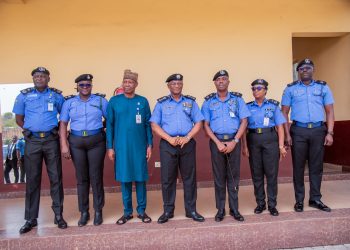By Nkechi Eze
The Nigerian Meteorological Agency (NiMet) has called for the inclusion of weather-related protocols in the regulatory framework guiding Nigeria’s multimodal transportation system, highlighting the vital role of meteorological data in ensuring the safety and efficiency of transport operations across the country.
The Director-General and Chief Executive Officer of NiMet, Professor Charles Anosike, made the call in Abuja on Wednesday, July 31, 2025, during the Multimodal Stakeholders Workshop organised by the Nigerian Safety Investigation Bureau (NSIB). The high-level forum brought together critical actors across the nation’s transport ecosystem to discuss the integration of safety regulations across land, rail, sea, and air transport systems.
In his remarks, Professor Anosike underscored the interconnectedness of weather and transportation, stating that adverse weather conditions pose a significant risk to operations in every transport mode. According to him, building a robust, efficient, and resilient national transport system demands an informed understanding of meteorological influences on safety and logistics.
“All modes of transportation land, rail, sea, and air are significantly impacted by weather,” he said. “Understanding the interplay between meteorology and multimodal transport is crucial for developing a safety-first and future-ready transport system for Nigeria.”
He reaffirmed NiMet’s commitment to national safety goals through the continuous provision of accurate, timely, and sector-specific weather information. He stressed the importance of integrating weather intelligence into planning, operations, and emergency response protocols in order to minimise disruptions and prevent avoidable accidents across the transport value chain.
“As the NSIB expands its regulatory mandate, it is imperative that weather considerations are not treated as an afterthought but as a core component of transport policy and safety regulation,” he added.
Professor Anosike commended the NSIB for its proactive stakeholder engagement, describing the workshop as a timely and commendable step toward harmonising Nigeria’s transport safety framework with global best practices. He expressed optimism that the outcomes of the deliberations would lead to practical, tailored regulations that significantly improve transport safety nationwide.
“The commitment shown by the NSIB in convening stakeholders to shape a more integrated, responsive, and weather-conscious transport framework is highly commendable,” he said. “I am confident that the resolutions from this workshop will result in smarter, safer, and more adaptive transport regulation across Nigeria.”
The workshop marked a key milestone in NSIB’s broader efforts to align Nigeria’s multimodal transport safety strategies with international standards and evolving national needs.
















